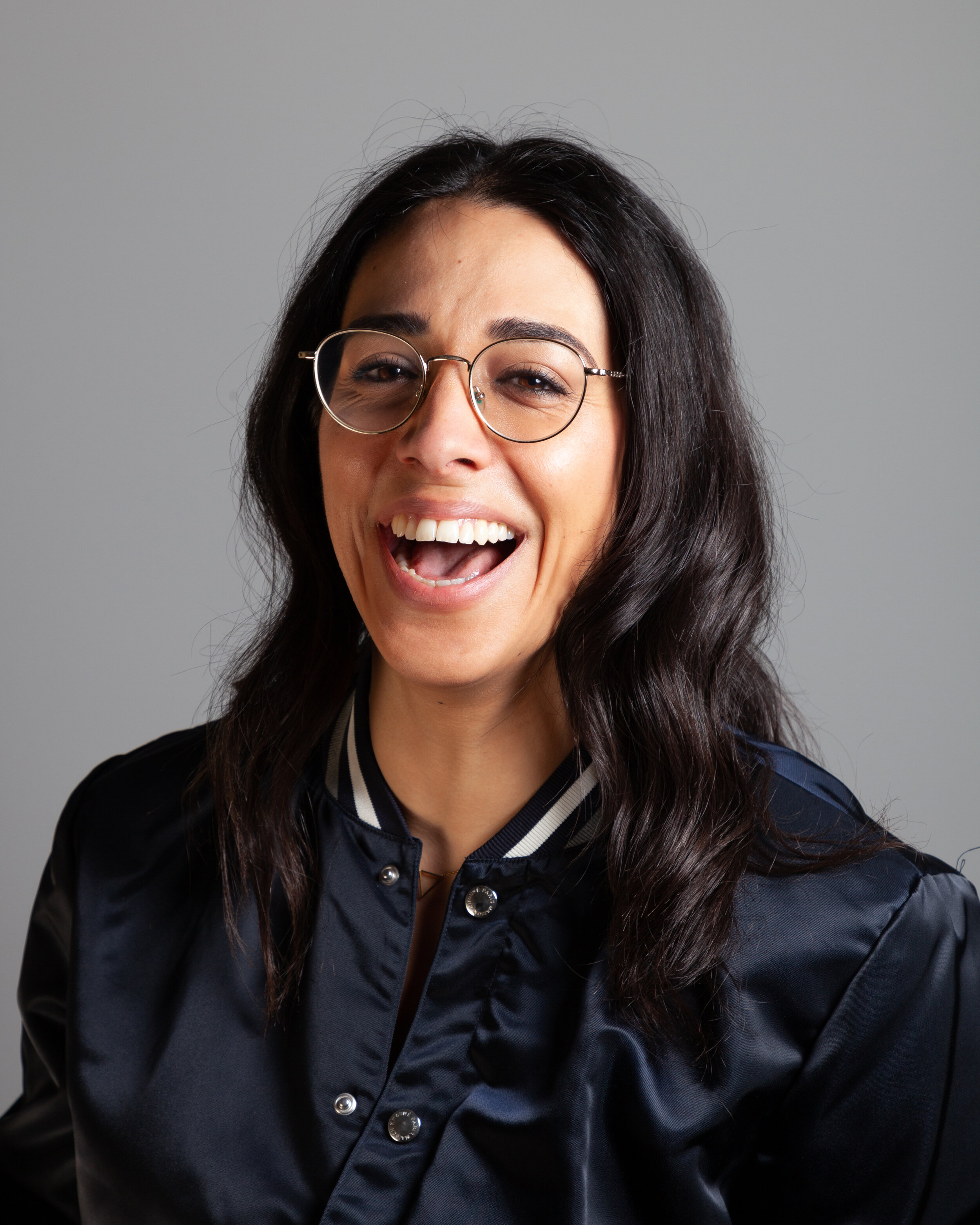Founder of Pachamama: Arianna Radji Lee
Arianna Radji Lee is the founder of Pachamama, a digital platform that informs, inspires and connects women in their fourth trimester and beyond. Launched in November 2019, Arianna has helped a growing network and community of mothers feel less isolated and more supported during the pandemic, through online events, courses, workshops and podcast, by providing direct access to experts on subjects that matter most to parents.
Arianna’s passion for community and value for expert knowledge comes from working in corporate events for over 10 years, with vast experience across the tech, beauty, marketing and insights industries. Arianna is also a former spinning instructor at boutique fitness studio PSYCLE London, where she gained valuable knowledge in the importance of women’s health and well-being.
Arianna spotted the need for a more modern, mother-focused, democratised approach to postnatal care, before becoming a mother herself. Through Pachamama, she aims to provide a centralised place for women to gain access expert care, content and community throughout one of the most significant transitions of their lives.
A born and bred Londoner with Persian heritage, Arianna lives in North West London with her hubbie, and they’re expecting their first child later this year.
Here she answers the Mama Sex Six:
What is the first thing that comes to mind when you hear the phrase "mama sex"?
Something taboo that no one really talks about. In general, as a subject, sexuality and sex for women is still frowned upon; but in particular changes around sexuality and sensuality in motherhood is not spoken about at all.
What inspired you to work/create/advocate on the topic of "mama sex"?
I wouldn’t say that I’m an advocate for ‘mama sex’. But what I do champion is openness around topics that are not widely shared. At Pachamama, my goal is to empower mothers, and a lot of that empowerment comes from knowledge and education.
I love talking about things that aren’t widely spoken about. I’ve shared my own experience of periods, infertility and now pregnancy with the Pachamama community, and have been blown away by the number of women who have experienced the same things as me. It just shows that we’re not alone. The same is true for sex and motherhood.
In your work/practice/art, what are the biggest hurdles mothers are facing in terms of their sexuality?
One of the biggest challenges is not knowing how or when to ask for help. And I think that comes down to a lack of confidence and feelings of discomfort, shame, guilt and/or embarrassment because we’ve not been taught how to have these discussions or to really understand what’s going on with our bodies.
It comes back to education and the lack thereof when it comes to women’s health, be it sexual or otherwise. The more we know about ourselves and our bodies, the more comfortable it’ll be to have these conversations, and the easier it will be to manage any issues.
What do you think society at large should know about motherhood and sexuality? And what is society getting wrong right now in regards to it?
We’re still so far off from understanding how to support women in their transition to motherhood. The identity shift that new mothers experience and struggle with is so incredibly common, but nothing is in place to support them. And sexuality is part of their identity.
Whilst for every mother that shift is different and incredibly personal, it’s really common for mothers to feel disconnected from herself sexually. And it’s not just new mothers - expecting mothers may have felt their feelings towards sex change too.
I think a huge part of it is being honest about how you’re feeling. Owning your emotions and saying ‘this is hard’ is not something that we’re necessarily good at doing. But as soon as we can acknowledge how we’re feeling, we can know how to better manage it and get the help we need.
What piece of sex advice would you give mothers? Was there something you wish someone had told you?
Talking about it with someone as soon as possible. Conversation and communication is key. This isn’t something that you need to experience on your own. If you have a partner, bring them into the discussion. Yes it’s your body, but your sexual health and wellbeing should be shared as a couple. If you need help, seek out a pelvic health physio and ask your partner to join you, so that they can better understand what’s going on with you physically, to be able to support you mentally and emotionally.
Let's amplify our voice: Who are some mamas you love following on social media?
@dr.fed.amati
@clarebournephyio
@andbreathewellbeing
@carolingbraggpt
@ohshittwins
@_luluadams
More information on Pachamama:
Through Pachamama’s online services and digital content, we support parents by providing access to experts in topics that matter the most to parents, from newborn care and nutrition to mental health and wellbeing.
Our recently launched service, Pachamama On Hand, brings expert care to new parents at the touch of a button, by pairing parents with experienced maternity nurses via WhatsApp for 24/7 text support. Our podcast, newsletter and weekly expert live Q&As provide parents with free educational content, and our growing community of like-minded women helps build confidence and connection by sharing the realities of motherhood from real lived experiences.
WEBSITE: pachamama-london.com
INSTAGRAM: @pachamama.london
PODCAST: anchor.fm/pachamamalondon

